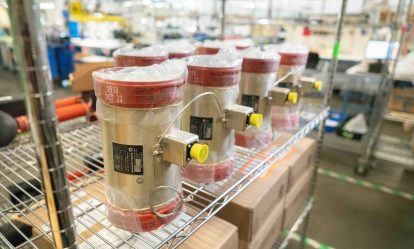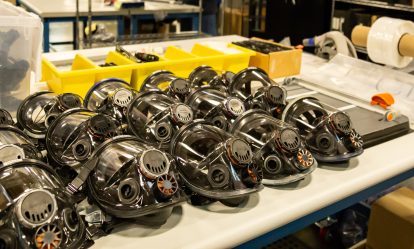by:
As we celebrate Women’s Month this March, we are reminded of the extraordinary contributions women have made throughout history, including in the manufacturing in the manufacturing sector. At Bridgeways, we honor the trailblazing women who have paved the way for gender equality and continue to inspire us with their results. In the realm of manufacturing, which has long been associated with a predominantly male workforce, the presence and contributions of women have often been overlooked. However, as the world progresses towards greater inclusivity and gender equality, the role of women in manufacturing is gaining recognition as a vital force driving innovation, efficiency, and growth.
The Landscape of Women in Manufacturing
Historically, women have faced significant barriers to entry and advancement in the manufacturing sector. Societal norms and gender biases have perpetuated the idea that certain industries, including manufacturing, are better suited for men. As a result, women have been underrepresented in manufacturing roles, particularly in leadership positions.
Recent statistics paint a sobering picture of gender disparity within the industry. According to the Bureau of Labor Statistics, women make up only 29% of the manufacturing workforce in the United States. Furthermore, the gender gap widens at higher levels of leadership, with women holding just 16% of executive positions in manufacturing companies.
Challenges abound for women in manufacturing, ranging from stereotypes and biases to systemic barriers that hinder their advancement. The perception of manufacturing as a male-dominated field often dissuades women from pursuing careers in the industry, perpetuating a cycle of underrepresentation.
At Bridgeways, we are proud to note that 80% of senior leadership positions are held by women. This statistic is a reflection of our commitment to diversity and inclusion.
Moreover, we understand the importance of creating an inclusive workplace culture where all employees feel valued, respected, and empowered to contribute their best work. In addition to our internal efforts, we are committed to fostering gender diversity across the broader manufacturing industry. We actively participate in industry forums, partnerships, and initiatives aimed at advancing women in manufacturing, sharing best practices, and advocating for systemic change, particularly for women experiencing homelessness and mental health challenges.
Breaking Barriers: Success Stories of Women in Manufacturing
Despite these challenges, there are countless stories of women who have defied the odds and risen to prominence in the manufacturing sector.
Kathy Warden – CEO of Northrop Grumman Corporation

Kathy Warden is the CEO of Northrop Grumman Corporation, a global aerospace and defense technology company. With over 20 years of experience in the aerospace and defense industry, Warden has held various leadership positions within Northrop Grumman before assuming the role of CEO in 2019. She is known for her strategic vision, operational expertise, and commitment to innovation, guiding Northrop Grumman in delivering advanced solutions for national security, space exploration, and technological advancement. Under her leadership, the company continues to drive growth and excellence in aerospace and defense manufacturing, contributing to its reputation as a leader in the industry.
Leanne Caret – President and CEO of Boeing Defense, Space & Security

Leanne Caret leads Boeing’s defense, space, and security business, overseeing a wide range of programs and initiatives in aerospace and defense. She brings extensive experience in engineering, program management, and leadership to her role at Boeing. Caret has held numerous leadership positions within Boeing before assuming her current role. As CEO, she oversees Boeing’s defense, space, and security business, leading a diverse portfolio of programs and initiatives in aerospace and defense. Caret is driving Boeing’s efforts to deliver cutting-edge solutions for national security, space exploration, and global defense. Under her leadership, Boeing Defense, Space, & Security continues to advance to the forefront of aerospace technology, supporting customers around the world with mission-critical capabilities and solutions.
Mary Barra – CEO of General Motors

Mary Barra made history in 2014 when she became the first woman CEO of a major global automaker. Under her leadership, General Motors has focused on innovation, sustainability, and technological advancement in the automotive manufacturing industry.
Ginni Rometty – Former CEO of IBM

Source: Ginni Rometty: leadership, legacy and a new mission (ft.com)
While IBM is known for its technology and services, it also has a significant presence in manufacturing, particularly in areas like computer hardware and semiconductors. Ginni Rometty served as CEO of IBM from 2012 to 2020, overseeing the company’s transformation into a leading provider of cloud computing and artificial intelligence solutions.
Opportunities for Growth and Innovation
Beyond individual success stories, there are broader trends reshaping the landscape of women in manufacturing. Technological advancements, such as automation and data analytics, are opening new doors for women to excel in roles that were once inaccessible.
Furthermore, the growing emphasis on diversity and inclusion within the manufacturing industry presents opportunities for women to thrive. Companies are recognizing the business case for gender diversity, understanding that diverse teams drive innovation, enhance decision-making, and better reflect the diverse needs of customers and stakeholders.
The Road Ahead: Strategies for Creating a More Inclusive Industry
As we look to the future, it’s essential for companies across the manufacturing sector to prioritize diversity and inclusion in their organizational culture and practices. By implementing proactive strategies and initiatives, we can create a more inclusive industry where all individuals, regardless of gender, can succeed and thrive. By recognizing the challenges, celebrating the successes, and seizing the opportunities for growth and innovation, we can empower women to play a leading role in shaping the future of manufacturing.






